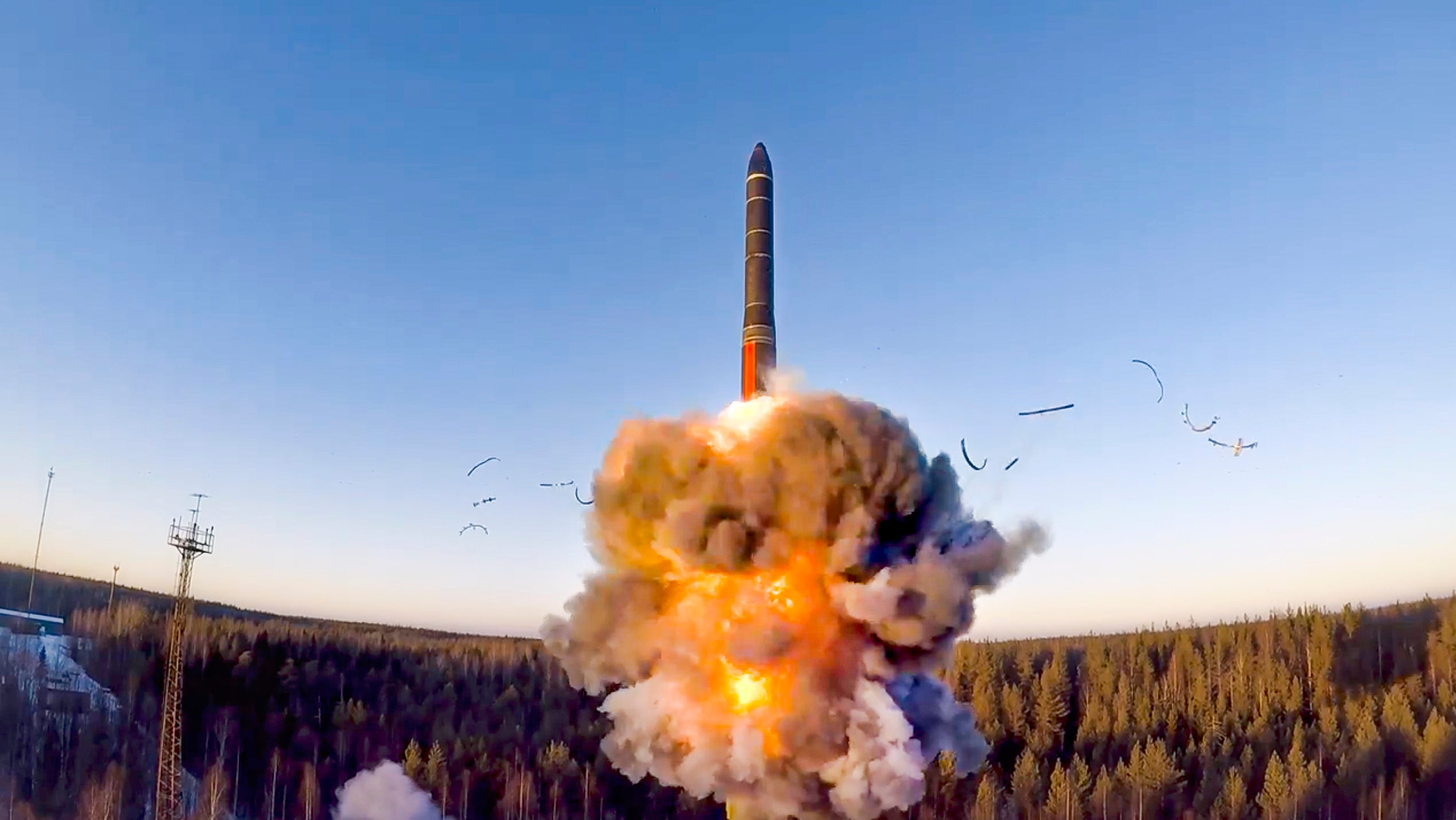Russia welcomes US proposal to extend nuclear treaty
The Kremlin has welcomed U.S. President Joe Biden’s proposal to extend the last remaining nuclear arms control treaty between the two countries, which is set to expire in less than two weeks

Your support helps us to tell the story
From reproductive rights to climate change to Big Tech, The Independent is on the ground when the story is developing. Whether it's investigating the financials of Elon Musk's pro-Trump PAC or producing our latest documentary, 'The A Word', which shines a light on the American women fighting for reproductive rights, we know how important it is to parse out the facts from the messaging.
At such a critical moment in US history, we need reporters on the ground. Your donation allows us to keep sending journalists to speak to both sides of the story.
The Independent is trusted by Americans across the entire political spectrum. And unlike many other quality news outlets, we choose not to lock Americans out of our reporting and analysis with paywalls. We believe quality journalism should be available to everyone, paid for by those who can afford it.
Your support makes all the difference.The Kremlin on Friday welcomed U.S. President Joe Biden’s proposal to extend the last remaining nuclear arms control treaty between the two countries, which is set to expire in less than two weeks.
Russian President Vladimir Putin’s spokesman, Dmitry Peskov said that Russia stands for extending the pact and is waiting to see the details of the U.S. proposal.
The White House said Thursday that Biden has proposed to Russia a five-year extension of the New START treaty.
“We can only welcome political will to extend the document,” Peskov said in a conference call with reporters. “But all will depend on the details of the proposal.”
The treaty, signed in 2010 by President Barack Obama and Russian President Dmitry Medvedev, limits each country to no more than 1,550 deployed nuclear warheads. It expires on Feb. 5.
Russia has long proposed to prolong the pact without any conditions or changes, but President Donald Trump’s administration waited until last year to start talks and made the extension contingent on a set of demands. The talks stalled, and months of bargaining have failed to narrow differences.
“Certain conditions for the extension have been put forward, and some of them have been absolutely unacceptable for us, so let's see first what the U.S. is offering,” Peskov said.
Biden indicated during the campaign that he favored the preservation of the New START treaty, which was negotiated during his tenure as U.S. vice president.
The talks on the treaty’s extension also were clouded by tensions between Russia and the United States, which have been fueled by the Ukrainian crisis, Moscow’s meddling in the 2016 U.S. presidential election and other irritants.
Despite the extension proposal, White House press secretary Jen Psaki said Biden remains committed to holding Russia “to account for its reckless and adversarial actions,” such as its alleged involvement in the Solar Winds hacking event, 2020 election interference, the chemical poisoning of opposition figure Alexei Navalny and the widely reported allegations that Russia may have offered bounties to the Taliban to kill American soldiers in Afghanistan.
Asked to comment on Psaki’s statement, Peskov has reaffirmed Russia’s denial of involvement in any such activities.